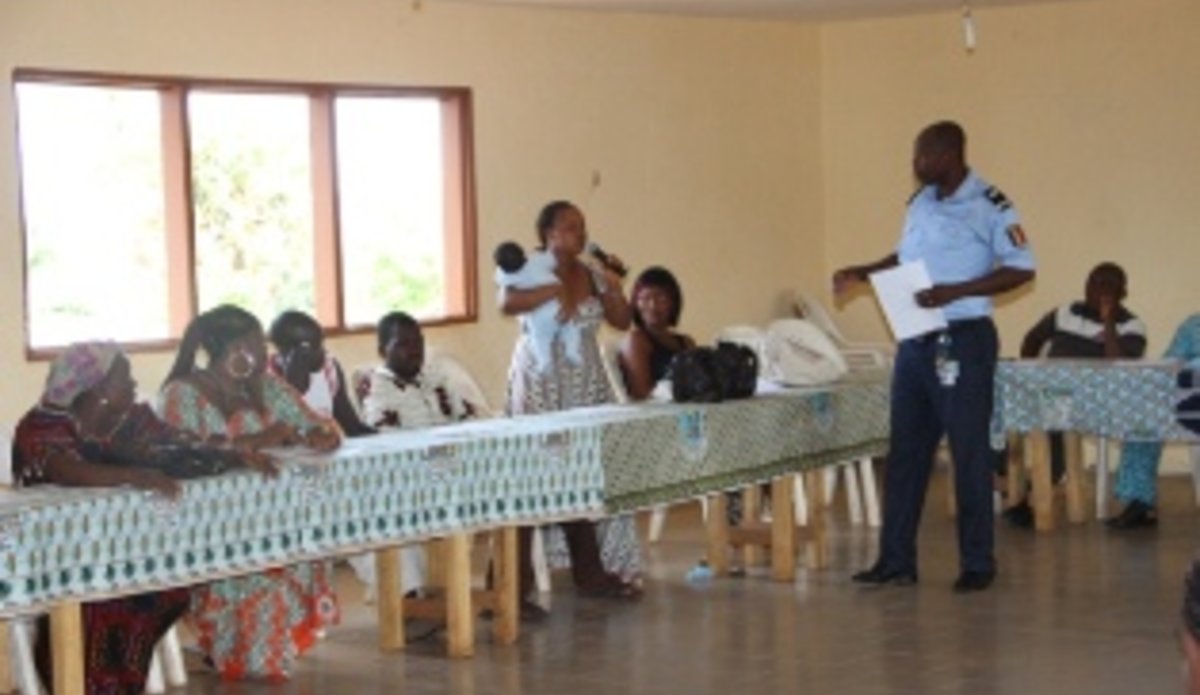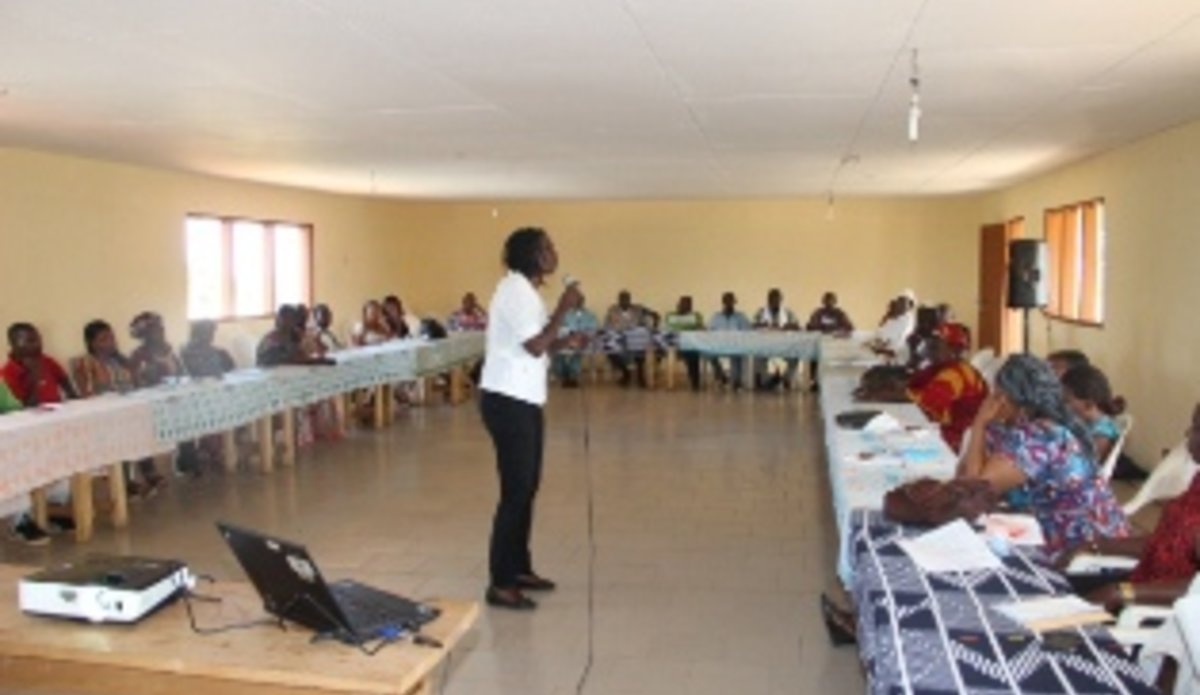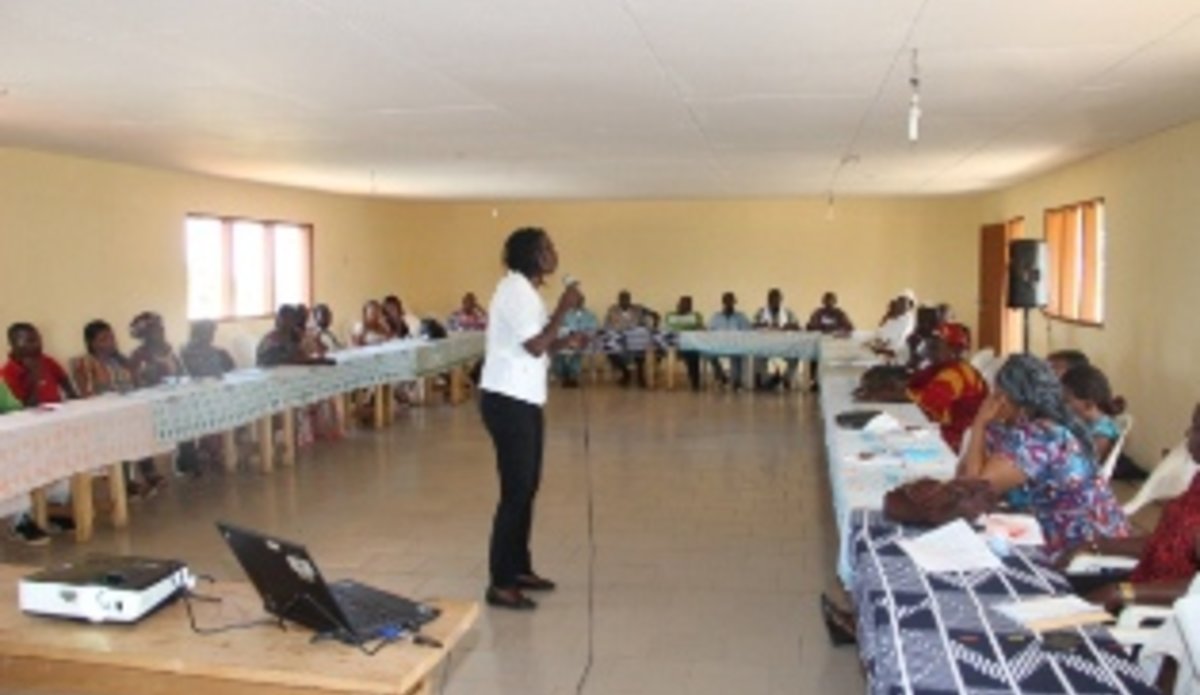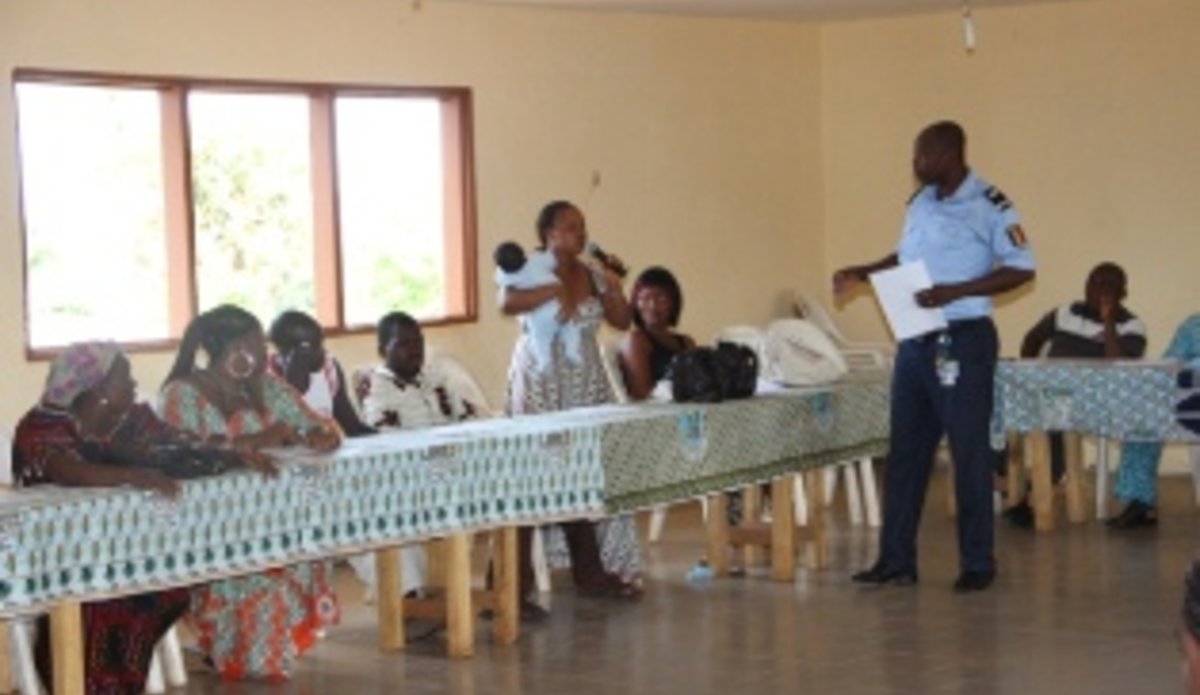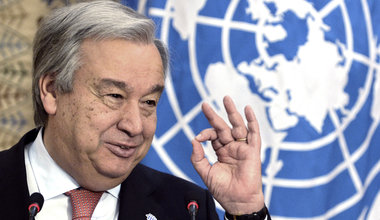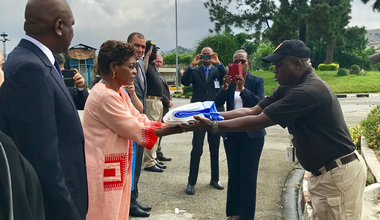Community leaders in Tabou pledge to promote peaceful electoral environment

Some 40 opinion leaders in Tabou, 480 km south-west of Abidjan on Friday 2 May 2014 pledged to promote a peaceful electoral environment in their area. The pledge was made during a workshop organized by the UN Operation in Cote d'Ivoire (UNOCI) on the contribution of community leaders to the strengthening of social cohesion and the preservation of a peaceful electoral environment.
At the opening ceremony, the head of the UNOCI delegation, Amane Niyenan thanked participants for showing interest in matters related to peace and called on them to spread the different messages of peace in their different communities. "You have demonstrated your readiness to work for the success of the peace and reconciliation process because our objective is to guarantee peaceful elections in 2015 and you are ready to help us achieve that goal," Mr. Niyenan said.
For his part, the Mayor of Tabou, Julien Klebe Tchibo, the UNOCI workshop comes at the right time in the sense that it would help to promote a cool-headed electoral debate. "Elections should be considered as a game and not as a period during which passions are let loose, creating social breakdown. We

have to understand at the end of this exercise that elections are organized to bring people around specific objectives," he pointed out.
Other topics discussed included the protection children, the promotion of human rights, and the role and responsibilities of community leaders in Tabou, and the importance of security in maintaining social cohesion and a peaceful electoral climate.
Recommendations adopted at the close of the workshop included the reinforcement of security during election period, the neutrality of the forces of law and order during elections, the presence of international observers in polling stations, increasing sensitization campaigns for social cohesion and the respect of human rights.
Participants included traditional and community leaders, representatives of women's and youth associations and the various quarters in Tabou.
 UN
UN United Nations Peacekeeping
United Nations Peacekeeping
